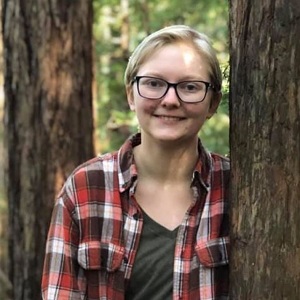Understanding autism: Speak up about the things that make your life unique
A diagnosis of autism was only the beginning of continued growth, awareness for University student
Try to remember elementary school. Did you get good grades? Did you have friends come to your house after school to play? Did you love your teacher? For me, school meant long hours away from home, desperately trying to fit in, and anxiety so bad that I called my mom, crying, at least once a week. This may sound unusual for a third grader until you learn something it would take me another nine years to discover: I'm autistic. Autism presents differently in everyone, and for a high-achieving student like me, it was easy to write off my problems as a smart child who disliked school.
For many years, my parents assumed that as time went on, the gap between my academics and my emotions would shrink, until I was at the same level as my peers. As junior high gave way to high school though, it became clear that that was not the case. I got high grades in difficult classes, but how to have friends, a lesson most learn by middle school, remained a mystery. I rarely brought home homework, but I had panic attacks that caused me to need to retake tests. I succeeded where others struggled, and struggled where others easily found success. I was different, but I didn't know why.
Finally getting my diagnosis a few weeks before my senior year came as a blessing. No one wants to be diagnosed with something as impactful as Autism Spectrum Disorder, or ASD, but for me it marked a turning point in my life. Finally, I understood why I had such a strange disconnect between my strengths and my weaknesses, why things that were supposed to be easy could be so difficult, why I failed to live up to the expectations set forth by my parents, my teachers, myself. I finally understood why I was the way I was.
College, some might say, is a time for coming into your own, a time to find out what you love and what you're good at and where you're going. For some, that's art, or engineering, or history, but for me in many ways college has served as a time to grow into my own skin and become passionate about myself.
I recently was on a panel, entitled "What is Neurodiversity?" where I got a chance to talk to the community about my experiences alongside professors and grad students. It was terrifying to talk in front of everyone, but it made me realize how important it is to speak up about the things that make your life unique because sometimes you are the only person who can.
I hope that by continuing to share my voice, others can be inspired to speak up and share their truths as well, because for a campus as big as UNR, a lot of students feel like they are dealing with something that no one else understands. We need to share our stories so we can lift each other up, let each other know that we are a community of shared experiences and kind understanding.
So, how do you do that? How do you make a difference? I suggest the following steps from silence to advocacy.
- Be honest with yourself: Be proud of who you are and be unashamedly yourself. Don't try and deny your experiences. Accept and embrace your identity.
- Find someone to build you up: Whether a mentor, a counselor, a family member, or a friend, find a person who can support you and understand you, and can advocate for you: The Disability Resource Center (DRC) and counseling center to find advocates
- Find others like you: There are people who share your experiences and struggles on campus, and they can make an excellent community. Wired Like This or the DRC Peer Mentor program are good places for this.
- Advocate for yourself: This can be scary, but stand up to others about who you are and what that means for your interactions. Whether getting an accommodation for a test or asking someone to stop making certain assumptions, speak up.
- Take up an active role: Get involved! Invite someone to the club, learn about others, start being a active member of your community. Suggest an outreach project or participate in an event.
- Advocate for others: Use your knowledge and abilities to make a big impact. Start a needed club, lead an event, or make a presentation.
(Editor's note: World Autism Day is April 2. Kate Kerr was a freshman at the University at the time of writing this. She notes, "I love the outdoors, and I am always eager to try new things! In my free time, I like to read, hike, work on art projects, and find new things to learn about. I grew up in Illinois, and I love to visit the home farm over break. Find me on Facebook as Kate Kerr, or email me at kkerr@nevada.unr.edu.")





